Roofing Road Trip with Bill Good Part 2 - PODCAST TRANSCRIPTION
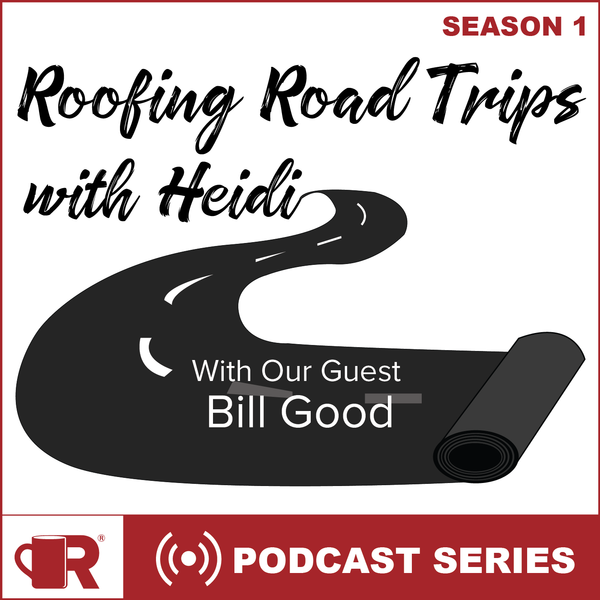
Editor's note: The following is the transcript of an interview with Bill Good. You can read the interview below or listen to the podcast here.
Heidi Ellsworth: Hi, this is Heidi Ellsworth, partner with Roofers Coffee Shop and I am here with Bill Good, former CEO of the National Roofing Contractors Association, NRCA, and this is actually part two of our conversation where we were talking about the Roofing Alliance and what Bill Good has been doing, and how he has just done so much to not only, while he was CEO to help the Alliance and make it what it is today, but also since retirement. So welcome Bill.
Bill Good: Well thanks. Good to be, good to be back.
Heidi Ellsworth: Good to be back. So, right now what we're, what I want to do, if you listen to part one you heard all about the construction management programs that are going on, the student competition and what's really you know, how the Alliance is getting ahead of things. They aren't waiting for the problem, they're seeing it years in advance. So, one of the programs that I truly love and I think everyone does, that has been adopted in the last couple of years, is the partnership between the Roofing Alliance and Ronald McDonald House Charities. And Bill, again, was instrumental in making this happen. So tell us a little bit about the history of how this all started.
Bill Good: Sure. So if you heard part one, you heard me talk about the power of an individual with an idea.
Heidi Ellsworth: Yes.
Bill Good: And so what happened in this case was I got a phone call, about four or five years ago from an NRC member in Southern California, Charles Antis, of Antis Roofing Company, who was at the time a new Alliance member, and was just kind of getting his feet wet in understanding what we were doing and trying to do and Charles has built a really interesting company modeled on philanthropy. So he, he has a strategy of wanting to be the philanthropic leader in the roofing industry in Southern California. So he's done that very successfully.
Heidi Ellsworth: Yes, yes he has.
Bill Good: Including, working with Ronald McDonald House in Southern California to the point where he's now chairing their capital campaign and doing all kinds of wonderful things for them, including of course the roofing work and, and so on and so on. So, he called one day and said, "you know, I've got this great relationship with the Ronald McDonald house in Orange County and I think we should do that. NRCA should develop a relationship with every Ronald McDonald house around the country." So, of course, I said, "well that's an interesting idea. I kind of thought I was busy already, but, we'll certainly see what we can do with it." And it happens, of course, that McDonald's is headquartered in Chicago, which is where NRCA is headquartered. So it wasn't too difficult to get a meeting with one of the Ronald McDonald House people to talk about this idea. And we began the conversation by agreeing that we weren't going to do it overnight.
Heidi Ellsworth: That's good.
Bill Good: And then we needed to take some time to figure out what this relationship could look like and to be certain that we were comfortable with each other. Even more than NRCA, McDonald's is obviously very protective of its brand.
Heidi Ellsworth: Yes, it is.
Bill Good: And wants to make sure that all of its partners are legit and the program is legit and, you know, to their credit, they do a lot of due diligence before they enter into any kind of a partnership. And I think it's much to NRCA's credit that they agreed to enter into a partnership with us.
Heidi Ellsworth: Right.
Bill Good: Because we join a list now that includes folks like Coca-Cola and La-Z-Boy Furniture and all kinds of big, big national well-known brand names. And we're on that list. The Roofing Alliance actually is on that list now, which is incredibly good. So we embarked on this program. We decided that the strategy would be that in a very broad sense, the Roofing Alliance, working with NRCA, this is an Alliance project, but it's also got NRCA's stamp on it, would attempt to take care of the roofs of Ronald McDonald houses in the United States. And we, we told them from the beginning, taking care of the roofs means to the extent that we can.
Heidi Ellsworth: Right, yea.
Bill Good: We don't, don't promise, didn't promise and don't promise that every roof will be free. But, we did promise and do promise that every roof will be taken care of. And every roof, every new roof, or new house, we'll at least save you money on your new roof and we can assure you that you'll be working with a good contractor and with good manufacturers.
Heidi Ellsworth: Yes.
Bill Good: So that is, that was the premise of the relationship. And I think we both, at the beginning, didn't know how that was going to work out right, yet the very first phone call I think I got was from the Ronald McDonald house in Philadelphia, which was in the process of building a $50 million expansion with a significant roof. You know, that's a nice way to get into the [inaudible 00:05:06].
Heidi Ellsworth: Yes. That's kind of the deep end of the pool.
Bill Good: But thankfully, and, thankfully two companies, like U.S Roofing in Philadelphia, like Firestone, like Carlisle, we were able to save that house somewhere in the neighborhood of a couple of hundred thousand dollars in their new roof. So that established for us, first of all, the knowledge that this is viable. And second of all, it gave us credibility with McDonald's. Now they knew that we weren't just talking about this and wouldn't be able to fulfill it.
Heidi Ellsworth: Right. And, I was there, when this all started too, I remember you and I talking and going through things and it was really important to have that proof of concept so that we kind of would be able to share with other contractors how this was going to work or could work.
Bill Good: Yeah, exactly. And, and not only could work, but I forgot to mention whether one other player in Philadelphia was the Union Roofer's local 30 in Philadelphia, agreed to do a lot of the work on Saturdays for free.
Heidi Ellsworth: Wow, that's great.
Bill Good: And we wound up being a really true industry partnership initiative where you had contractor, manufacturer, union, all kind of chipping in and making it work and doing a good deed and saving the house a lot of money that they could use for other things. So, then the strategy became, okay, how do we broaden that? Now we have Southern California, we have Philadelphia that kind of got started. There are 184 Ronald McDonald houses in the United States. 19 of them are housed within hospitals. So, that leaves 165 that have roofs that need to be taken care of. Some of them are small eight bedroom residential style homes with relatively small traditional shingle roofs. Some of them are, like Philadelphia, big multi-story commercial buildings with literally hundreds of rooms and, you know, big, what we think of as a typical mid-sized commercial roofing project. So it was a lot of, a lot of variability. So what we decided to do was to align every one of the 165 houses with a local roofing contractor. Alliance members got first opportunity and NRCA members got second opportunity. And then if we failed with both, then we went out to the local community and tried to engage and it took a while. But I am very pleased to be able to tell you that we have 165 now that are all accounted for. The contractors who agree to adopt the roof of these houses agree to do three things. They agree to do an initial inspection, they agree to do an annual maintenance and they agree to take care of problems, legal problems, and they agree to do all those things at their own expense. So once we set up the relationship, the house can have some assurance that their roof is, first of all, it's okay because it's going to be inspected. Second of all, it's going to be taken care of so they don't have to worry about it. And third of all, if there's a problem, they know somebody to call right away who's going to do the right thing and do it for free. And then we tell the house and the contractor, if there're major repairs or if the house is doing an expansion or if there's a new house, we will work with the contractor in the house to come up with the best roof design. And then we'll go out, we'll reach out to the manufacturing and distribution community and make an attempt to get some material donated in addition to getting some labor done.
Heidi Ellsworth: And you've been pretty successful with that so far?
Bill Good: Nobody has said no yet.
Heidi Ellsworth: Yeah, I love that. That's perfect.
Bill Good: And like I said, it's not 100% free for everything, but we have in every case where there's been a major project, we've gotten either material or labor or both donated.
Heidi Ellsworth: And, you know, for those who may not be familiar with Ronald McDonald House, these homes help families stay together when their children are sick. And, so if a child has to be in the hospital, whether it's a long-term, something like cancer or those types of things, the family can stay right there free of charge.
Bill Good: So here's the way they work. Yeah, it's such a cool idea. The way that they work is they're all near pediatric hospitals and, alike I said, they range in size from five to 10 rooms to two to 300 rooms, kind of depending on the hospital and the needs of the local community and all that stuff. But the model is anybody who has a child in a hospital is eligible to stay at the Ronald McDonald House. If they can't afford it, it's free. If they have the wherewithal to help pay for the room, it's $25 a night. Meals are provided. Coca-Cola products are provided, the rooms are all better than your average hotel room.
Heidi Ellsworth: Beautiful, yest.
Bill Good: There's family space, there's green space, there's meditation space in these houses. They're all really well designed, so they're amazing. It's just an amazing organization. And the work that they do. The challenge for Ronald McDonald Houses today is pediatric care has gotten to be so good that the length of stay, the average length of stay, keeps increasing. That's good news obviously for the families, but not so good news for Ronald McDonald Houses because they're being stressed by this. So the average stay in some of these houses now is approaching a month.
Heidi Ellsworth: Wow.
Bill Good: Where you know, 10 years ago, it might've been two weeks and 30 years ago, it might've been one week because they treat a lot of preemies. They treat a lot of pediatric oncology cases. They treat a lot of pediatric heart conditions and transplants. So that kind of thing. So, you know, those are all long-term care needs and, obviously families that come into those situations are stressed. They're anxious, they want to be with their kid, they want to be, worst-case, be as close as possible, to their kid. And so that's the need that the house fills.
Heidi Ellsworth: And you know, it's really interesting, I just have to share because I went to my local Ronald McDonald House in Bend, Oregon, which serves St. Charles hospital and they, Oregon is a large state on the East side and they have families come from, you know, hours and hours away. Some of them are pregnant mothers who are at risk and who need a place to stay until the baby's born because they would never be able to get to the hospital in time if anything went wrong. And it was so inspirational to talk to the lady in charge of the house because River Roofing adopted that house and during the snow storms, when no one in central Oregon could get their roofs cleaned off and they were having ice dams, River Roofing kept that house clear so that families could get back and forth to the hospital. It's just, it's such a you know, I just get emotional over it because it's so inspirational.
Bill Good: Yeah. And so for the Roofing Alliance, and for the roofing industry, one of the objectives here was to help change the image of the roofing industry, which you know, again, that's, that's a very long term proposition, that's not going to happen overnight. But when people start hearing about the work that the Roofing Alliance is doing with Ronald McDonald House, and individual contractors and their local communities are doing with Ronald McDonald House, that's kind of changed it. We know it does. We know it's changing people's minds. You know, not all roofing companies are mass murder, or not all roofers are mass murderers. They're the ones we read about. But, but these are people doing good deeds in their communities every day.
Heidi Ellsworth: I want to touch on that a little bit, too, because you mentioned Charles Antis, who is an RCS influencer on our site, and one of his mantras he talks about all the time is that roofing contractors, and the roofing community, has been giving forever, for centuries. We, when there's a new roof after storms, who are the first people out there, right? To protect the families and protect the properties. But we're a humble bunch and never talk about it. And that's really been one of the things that he has tried to help bring to the forefront at the Alliance. And I think in the roofing industry, overall, is that it's okay to talk about what you're doing in your community and how generous this industry is.
Bill Good: And the reason it's okay to do it is because it inspires other people to do it. It's not just about bragging or trying to draw attention to yourself. If people understand the value of it and "hey, I can do that too," then all the better. Right. And that's, I know the way Charles thinks about it. Yeah. The other, the other part of that I think is a lot of roofing contractors especially, and especially smaller ones, first of all, they understand that they're part of a community so it's kind of understood with them that they're expected to give back.
Heidi Ellsworth: Right.
Bill Good: So they will and they won't talk about it because it's just part of what they, part of their business model is. I'm going to be in the community, I'm going to do the right thing in the community. The other, the other piece of it, I think, is they don't always know how to do, even if they wanted to tell their story, they don't know how to do it. They don't have communications staff in their offices. They don't have relationships with public relations firms who would do that for a bigger company. So, the ability of the Alliance to tell that story more globally is important. And then if the contractor locally can tag onto that by just sending pictures into the local newspaper that helps not only get the message out, but it, it broadens the impact of the entire roofing industry effort because now it's just not NRCA talking about it or the Alliance talking about it, it's the whole industry talking about it. And when that happens, it begins to take on a life of its own.
Heidi Ellsworth: It really does. And you know, I think that's a great point because I've been fortunate enough to be working on the toolkit for contractors that you're a part of. And you know, we put this together to help contractors talk about what they're doing, how to work with the house, how to work with the media. And so it's, you know, you first, you have this big initiative, 165 homes adopted, but then what do you do then? And so that's really, you've been so instrumental in that in troubleshooting and really helping to help the contractors take this and not just have it sit on a shelf.
Bill Good: But here's, here's what happens and here's the really fun part. What happens is once you introduced these people to the opportunity to work with the Ronald McDonald House, then they want to do more. It's not like it's become an obligation, now it's become an opportunity and they understand, wow, you know, I can get my employees to come in and cook a meal on an evening after work or I can get them to come in and work the fundraising event or whatever. A lot of them do golf tournaments, whatever, whatever it might be. They can get their employees engaged. That becomes a huge team building effort for the company. Employees love doing that and again, it just sort of snowballs. When I began talking to folks about doing this, obviously a big piece of this effort is the manufacturing community. And they have been almost unanimously remarkable, just, and remarkable to the point of what else can I do? Let me know when there's another house that's coming along and especially if it's in an area where I have a plant or I have a big presence because then we can get our employees involved. So, this is more, again, you know, the Alliance is more than just roofing contractors, the Alliance is the entire industry. And it's really been great to see the way the entire industry has embraced it. Manufacturers, distributors have been remarkably good. Contractors have been unbelievably good. It's just been a wonderful experience for me to see it all.
Heidi Ellsworth: Well, and when this all started, I mean, I just, we, I think we need to point out two really instrumental donations is that when it started all out, you had to figure out, I remember sitting in this meeting, figure out where all these houses were, what they look like, what was the materials. So ,I know that Dataforma and EagleView were instrumental in helping get it off the ground.
Bill Good: Yeah. We've had so many great partners in this effort. So, EagleView basically said, we've got reports on all these 184 houses. You're welcome to have them. Dataforma said, hey, you're going to need to build a database to manage all this stuff. We'll do that for you. And those things have both happened. And, both of those companies are asking, what else can we do? How can we do more? We've had some of the big manufacturers step up to the plate in a really big way. GAF, I have to call out, has donated materials now on three major, major Ronald McDonald expansions. Carlisle and Firestone, I think I mentioned earlier, both have, Johns Manville has been a big, big contributor. I didn't know until I talked to the President of Tamco early in this undertaking that they have done a ton of work for the Ronald McDonald House in Joplin. So there's a lot going on that we didn't even know about going into this. And then there's a lot going on that we have to kind of pull teeth to get the information about what's actually been happening. I didn't know about your story.
Heidi Ellsworth: Oh yeah, yeah. River Roofing was awesome. Yeah.
Bill Good: You know, but then again, they're not going to call me to tell me, just wanted to let you know we did this.
Heidi Ellsworth:Right. Yeah, you know when you have a storm, or you know how the phone rings in a roofing office, right, you, you can't get through to get that snow off or anything cause you think, well they put Ronald McDonald House first.
Bill Good: Right.
Heidi Ellsworth: So that says a lot about what's, what's going on out there. So I want to talk a little bit about, to the people who are listening to this podcast, how can they get involved? How can they get involved with, I mean I know it's, we talked about Alliance and then NRCA members, but those members probably need help. Right? In that area.
Bill Good: Right. So we've had a lot, we've had a lot of those kinds of requests, actually. So, where a contractor says, oh, I have a house that I know about that's in my community and what can I do? And we've already got a contractor who's adopted it, let's say, we'll call that adopting contractor and say, we have somebody who'd like to work with you. Are you good with that? They all say yes. They've all said yes and gladly for all the obvious reasons. I mean, if you're going to do two maintenance visits a year, you can each do one and still serves the house in the way that we want, but it's not that way as much of a burden on either one of the contractors. If there's a big job, a big repair, a big replacement or whatever, then maybe you want to get 10 contractors involved or get the, if there's a union involved, get a union local involvement. There's lots of different ways to structure that. The other thing I would tell you is the houses are, what most people don't understand, and what I didn't understand until I got involved in this, is only on average 6% of the funding for these houses comes from McDonald's. So these houses are all independently owned and operated. They're all independently managed and governed and they're very, very much volunteer driven. So there's all kinds of opportunities for volunteering. Even if it's something as easy as cooking a meal, all you have to do is go to the website of the local house. Look, almost all of them have a tab that says, I want to volunteer, or something like that. And it'll give you a whole dropdown list of things you can do. You can, you know, come to the house and help clean. You can, cooking a meal, it's easy, it's fun. It's a great way to, to do some team building. People who do it unanimously leave feeling good about themselves and about the experience. Cause you're, you know, you're taking care of people really in desperate need, not only for food, but for human contact and attention and people to talk to. And to have that ability is really, really meaningful. So there's all kinds of ways to get involved. It's a wonderful organization. The other thing I've learned is that they're all, all the houses are professionally managed. They have to meet McDonald's metrics. So, they, as you would expect.
Heidi Ellsworth: Right, right, right. Yeah,
Bill Good: They're all clean.
Heidi Ellsworth: Yeah. Yeah.
Bill Good: They're all well-built. They're all well-maintained, but they also have boards and committees, always looking for people to get involved at that level. But the boards tend to be community leaders, so it is a fantastic networking opportunity. Ronald McDonald Houses are not handing out operations. They're generally very well-managed. They generally have capital funds. They generally have financial reserves, you know, they know the house is going to be there for a long time and they've made plans to make sure it is. So it's the, it's a really good kind of organization to get involved with.
Heidi Ellsworth: Great way to get connected in your community. Right there. Well, Bill, this has been phenomenal. Thank you. And I think, you know, we may have to do another one again because there's just so many topics, but I want to end this one on the Ronald McDonald House. It just feels so good. And I want to let everybody know that first on the Roofer's Coffee Shop, the Roofing Alliance has a directory, all these articles, and lots of information, so if you're kind of like, okay, I just heard all this, I don't know quite what to do, you can read about it on the Roofer's Coffee Shop. You can go to roofingalliance.net and you can get involved there and see what's there and I would really, and maybe the meeting will kind of end on this. But, I really recommend that if you are in a position that you want to get involved in the industry on a larger level and want to leave a legacy for the industry, getting involved with the Roofing Alliance is one of the best things you can do. And maybe, I said we were going to end, but just real quick, just a little bit about membership and being involved because I know you've been making personal visits, you help people kind of understand how it works for their business. So maybe let's just end on that.
Bill Good: Yeah, sure. The Alliance is a foundation, 501(c)(3) charitable organization, that, its mission is to do education, research, training, and philanthropy for the betterment of the entire roofing industry. It operates with a permanent endowment fund. It operates with a membership model, so people who make significant commitments to the endowment fund are members, become members of the Alliance, and once they fulfill an initial obligation, they're members forever, the company's a member forever. And it's a commitment that's available over a long period of time. So, it's something that's manageable. And today we have, the Alliance has, around 170 company members and a few individual members. They meet a couple times a year to determine what kind of projects to fund and I'm very happy to tell you that the endowment fund is somewhere in the neighborhood of $10 million.
Heidi Ellsworth: Wow.
Bill Good: So, we're not talking about hand to mouth operation.
Heidi Ellsworth: That's good.
Bill Good: We're talking about a significant roofing industry program and, yeah, we'd love to talk to anybody who might be interested.
Heidi Ellsworth: Yeah. I just think it's one of the best things you can do if you're at that point where you want to really... the funding, the projects, the research, the Ronald McDonald House, the construction school management program, all of this helps the roofing industry, our image, and really helps bring on new talent and young people to our industry, which is what we need to do. So, please get more information. Bill, thank you again, and will you come back and talk to us again?
Bill Good: Sure.
Heidi Ellsworth: Okay, awesome. For all of our podcasts, please go to rooferscoffeeshop.com and see our podcasts. Like I said, you can learn more about the Roofing Alliance in our directory and in the mini blogs and articles that we have out there. Thank you all for listening and have a great day.

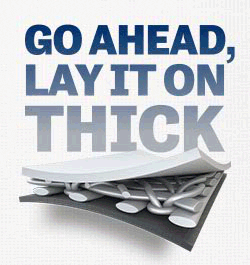
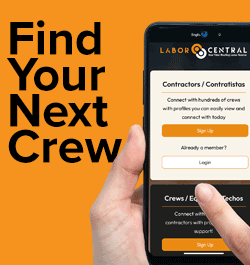

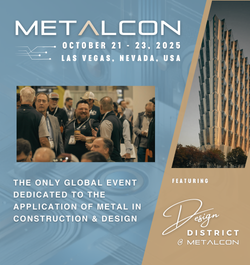




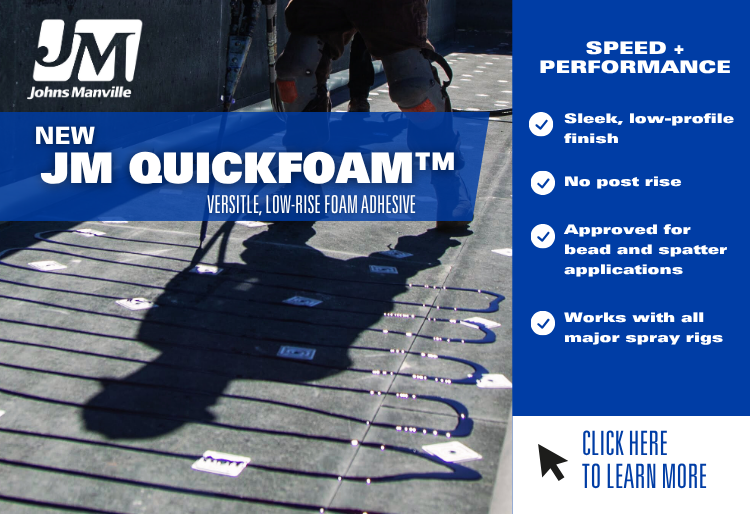



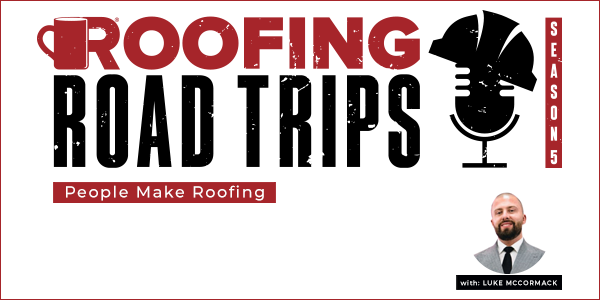
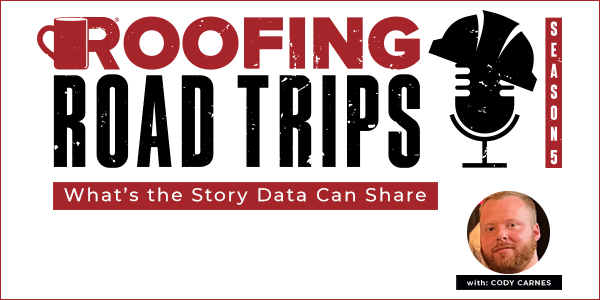
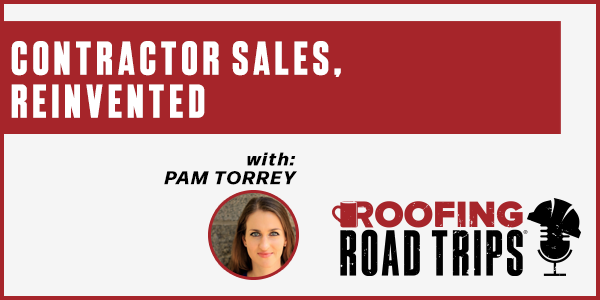


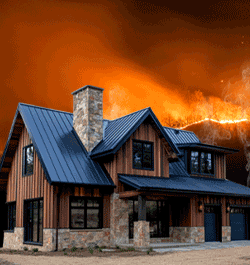

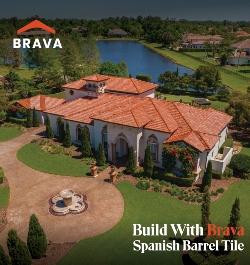


Comments
Leave a Reply
Have an account? Login to leave a comment!
Sign In